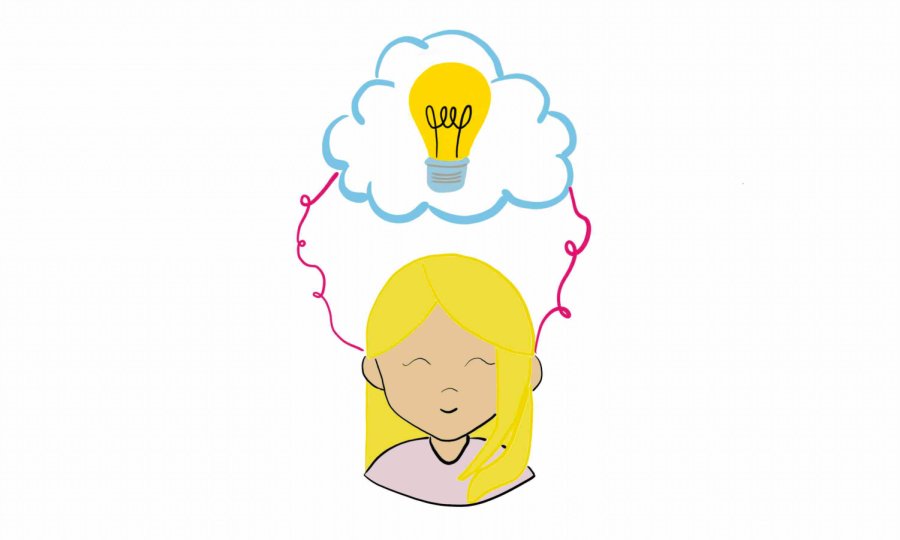Northwestern-led study looks inside the brain to observe memory storage during sleep
Illustration by Grace Knickrehm
Researchers at the Cognitive Neuroscience Laboratory observed how sounds played during sleep improved memory.
November 18, 2022
Playing and listening to sound while sleeping can reinforce previous learning, a Northwestern-led study released in October concluded.
Led by Jessica Creery (Weinberg ’15, Ph.D.’19), a former graduate student at NU’s Cognitive Neuroscience Laboratory, the study examined memory consolidation — the process by which new memories are stored in the brain and transformed into enduring, long-term memories.
Researchers from the University of Michigan and Middlebury College’s psychology departments, as well as the University of Chicago’s neurology and neurological surgery departments, collaborated on the study.
“We are just at the tip of the iceberg of understanding how memory is processed,” Creery said.
In the study, Creery asked nine patients to learn the locations of a set of objects on a screen, each associated with a unique sound. After a half-hour break, patients were tested on the location of each object but were not given feedback on their responses.
The patients then slept while Creery played 10 to 20 sounds repeatedly — half of which were associated with the objects and their locations each patient had memorized — and monitored the patients’ brain activity.
When patients were tested on the objects’ locations again in the morning, their performance improved significantly compared to the pre-sleep test.
“When you present a sound to a patient, the hippocampus responds differently if it’s one of the sounds they heard in the memory test,” said psychology Prof. Ken Paller, a senior researcher on the study and director of the Cognitive Neuroscience Program. “Part of that activity is associated with an improvement in their ability to remember the (object’s) location when they wake up in the morning.”
The study is the first to use electrodes inside the brain to observe memory processing during sleep, Paller said.
The electrodes allowed researchers to record brain activity directly from the hippocampus and cerebral cortex, which had previously only been observed in animals.
However, Creery said her team didn’t implant the electrodes themselves.
“We were only able to do that because patients already had electrodes implanted inside their brains,” Creery said. “They had medically intractable epilepsy, and their neurology team was identifying the area of seizure onset.”
Due to seizure activity overnight, though, four of the nine patients were excluded from the study’s results.
Sixth-year psychology Ph.D. student Adrianna Bassard worked on the study and said the implanted electrodes allowed the team to record more precise results.
“When we’re monitoring from the scalp, all we can really see is what stage of sleep you’re in,” Bassard said. “If someone has electrodes implanted in their brain, then we can see more fine-tuned oscillations.”
The study improved understanding of memory consolidation by linking improvements in memory to both reactivation through sound and specific brain activity patterns, according to Paller.
Because those patterns of brain activity occur specifically during sleep, researchers also said the study demonstrates the importance of sleep to memory stabilization.
“A lot of people neglect their sleep because they think it’s just a waste of time,” Paller said. “But for memories, for creativity, for solving problems, we need to value our sleep a bit more.”
Email: joyceli2025@u.northwestern.edu
Twitter: @joyycee.li
Related Stories:
— Feinberg study reveals brains adapt memories over time
— Northwestern Medicine scientists find brain pathways to alleviate depression
— Feinberg study shows memory of the elderly is negatively affected by hospital stays



